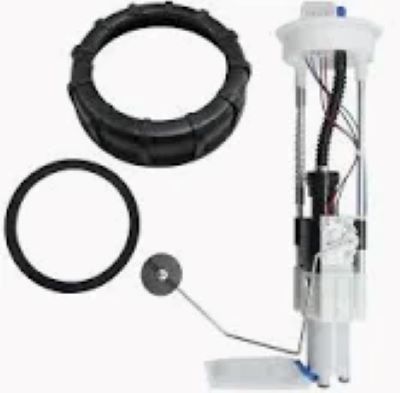A good fue1 pump is essential for proper engine operation, when the valve through which fuel usually flows has gone bad it can greatly affect performance and cause serious problems in maintaining power and efficiency. Drop in Fuel Pressure The first signal of a bad fuel pump is the decrease in fuel pressure. Most vehicles have a normal range of fuel pressure between 30-60 PSI, and when the typical motor drops it can be at least 10-15% less. This decrease can result in anemic acceleration and even lazy throttle response, but worst case scenario the engine could actually cut out completely.
Furthermore this has a greater effect on engine performance at high speeds. For example, if the fuel pump is faulty it might be able to supply enough gas for around-town speeds of 35-45 mph but fail at highway speeds like 60-70mph and cause sporadic sputtering or cut out completely. Fuel delivery issues contribute to a significant number of engine-related breakdowns—nearly 20%, according to an analysis by the American Automobile Association (AAA)—which is more often than not traceable back to an old or failing fuel pump.
A frequent reminder of the challenge is that in 2018 General Motors had to recall almost 200,000 vehicles for a potential fuel pump problem. This impairing the safety drving conditions due to erratic engine performance during acceleration were caused by these pumps. It reminds why a working fuel pump is so important in keeping your engine running right.
Fuel economy: Has the fuel pump been replaced. Air-fuel comes in a solution and the fuel pump now fails managing this ratio leading to improper combustion. This could result in the engine burning excess fuel to compensate which can reduce your car's fuel efficiency by as much as 15% (in cases where a weak flow of gasoline through a pump causes it to struggle supplying all injectors.). With their high fuel consumption comes the cost of refuelling more often which can be particularly expensive for long distance drivers.

The stock RZR fuel pump does have that flaw, as do the turbocharged engines more broadly. Unlike an N/A, a turbocharged engine will produce significant levels of boost and require higher fuel flow rates to maintain adequate air-fuel ratios. A failing fuel pump means not enough fuel will reach the turbocharger, which can cut overall power output but less than 20-30%. This is critical for performance cars, which need faster fueling.
German automotive engineer and father of the 911 Ferdinand Porsche supposedly said once, 'A perfect race car crosses finish line in first place then falls into pieces.' This quote reinforces the value in testing performance boundaries while also sustaining fundamental features that ensure high-quality engine health. An only slightly fouled fuel pump will do more than simply suck away about half of the horsepower.
This includes error codes that refer to the fuel pump, like a P0087 (fuel rail pressure too low) in an OBD system. In modern vehicles, this code typically shows up as the pump not delivering fuel at the correct pressure and indicating a check engine light.
The replacement of the fuel pump is necessary to prevent these problems. To learn more about taking care of your fuel system, go to for top-notch quality Fuel Pump that guarantee steady engine operations.